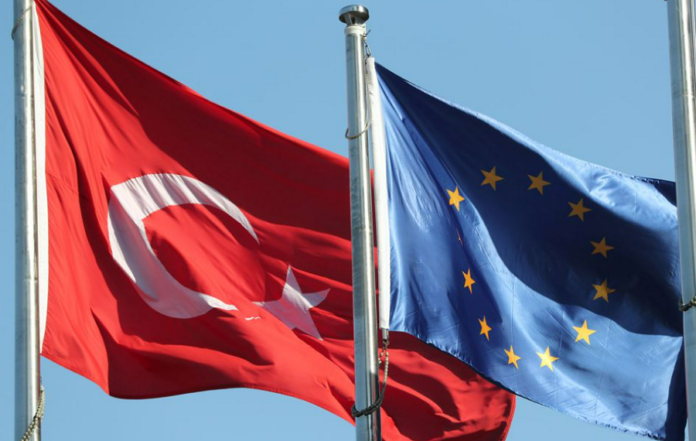The European Union and Turkey are discussing an update of their customs union as part of the country’s process of re-engagement to regain the trust of European partners and investors, according to Bloomberg.
“There are difficult issues to be addressed in this regard,” Paolo Gentiloni, the EU commissioner responsible for customs, told Bloomberg in a statement Tuesday. “We will look into these with our teams after the summer and see whether it is possible to build on these new signals from Turkey.”
Gentiloni met twice with Turkish Finance Minister Mehmet Simsek over the past two weeks and said he was interested to hear the minister’s “positive messages both on the government’s economic plans and on Turkey’s relations with the EU.”
EU foreign ministers signaled their readiness to work for closer ties with Turkey last month, with the bloc noting that Turkish President Recep Tayyip Erdogan had given the green light to Swedish membership of the NATO military alliance. Prior to backing Sweden’s accession, Erdogan linked Sweden’s NATO bid to Ankara’s efforts to join the EU — but EU accession is still off the table.
Senior EU officials have welcomed Turkey’s efforts to restore relations with the EU as the country courts foreign investors to help boost its ailing economy and end a cost-of-living crisis partly caused by surging inflation. Ties with the EU have been strained by Erdogan’s perceived clampdown on political opponents.
Simsek said at a conference in Salzburg last week that it was irrelevant whether Turkey would become a EU member at the end of the process. “All we need is to allow us to continue on a journey that is so relevant in terms of wholesale transformation,” he said.
As part of the effort to relaunch the process, he said that the “low-hanging fruit” is updating the customs union, in place since 1995, by adding some Turkish agricultural goods and services.
Josep Borrell, the EU’s foreign affairs chief, said on July 20 that resolving tensions over Cyprus will be key to the re-engagement with Turkey. Cyprus has been divided since 1974, when Turkey occupied the northern third of the island following a coup by supporters of the country’s union with Greece.
The customs union agreement provides for a common external tariff for all industrial goods, but does not apply to services, public procurement or agriculture — except for processed agricultural products. Bilateral trade concessions apply to agricultural, coal and steel products.
The European Commission, the EU’s executive arm, had long pushed for updating the trade agreement with Turkey but failed to make any progress amid the deterioration of bilateral relations and tensions in the eastern Mediterranean.
The talks on the customs union come against the backdrop of the EU’s attempts to improve its trade relations with nations, seeking to cement partnerships in a turbulent geopolitical context and secure access to critical materials.
Hahn said that the process of re-engagement with Turkey and improving economic relations are also important for security reasons. “I think nobody who is realistic talks about accession, but there are many other opportunities,” he said.


